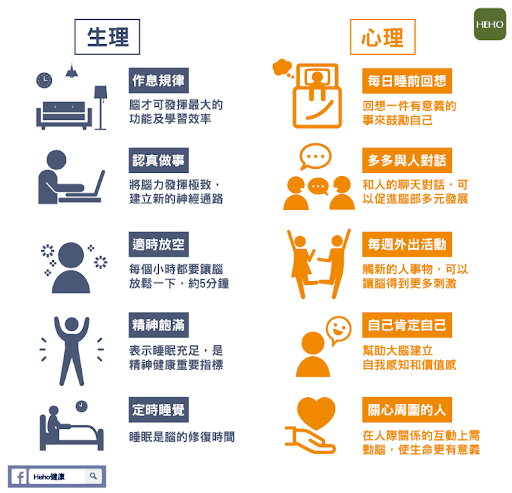Mei-Mei forgot the location for the midday meeting again today. She wrote down in her forgetfulness log that this is the 7th thing she has forgotten in the past two weeks. Since taking on a new project, Mei-Mei's memory has worsened, she can't concentrate, and often feels anxious, which leaves her feeling exhausted.
Unnoticed Brain Fatigue
If you have similar experiences, you might be suffering from "brain fatigue." This is a recently recognized sub-health condition common among professionals and students who engage in intense mental work. The effects of brain fatigue include difficulty concentrating, reduced comprehension, slower thinking, memory loss, and even diminished communication skills. These problems severely impact performance at work and school.
https://news.immigration.gov.tw/NewsSection/Detail/d9cff066-7780-4101-8dea-53d89cbb3f41?lang=TW
Modern life typically involves high stress levels, which, according to psychiatrists, interfere with cognitive function and raise brain fatigue levels. This affects the autonomic nervous system and hormone secretion, exacerbates menopause symptoms, and increases the risk of depression. Dementia expert Professor Takehiko Fujino from Japan warns that prolonged brain fatigue may lead to dementia.

Prolonged Brain Fatigue May Lead to Dementia. Photo/Heho Health
Tips to Combat Brain Fatigue
If you or someone close to you has been experiencing symptoms such as confusion, decreased activity, repetitive questioning, or insomnia, seek professional medical help as soon as possible. In daily life, you can maintain cognitive function and emotional stability by consuming foods like deep-sea fish oil, colorful vegetables and fruits, bananas, and fresh milk, and by following these 10 tips:
https://news.immigration.gov.tw/NewsSection/Detail/E6D6C231-3C5A-4747-B269-AB0710B04B60?lang=TW
- Regular Schedule: Ensure adequate sleep and maintain a consistent routine.
- Balanced Diet: Eat foods rich in Omega-3 fatty acids, colorful vegetables and fruits, bananas, and fresh milk.
- Moderate Exercise: Engage in daily moderate exercise such as walking or yoga.
- Reduce Caffeine: Avoid excessive reliance on caffeine; reduce intake.
- Take Breaks: Take short breaks during work or study to relax your mind.
- Stay Social: Keep in touch with friends and family, and participate in social activities.
- Manage Stress: Learn stress management techniques such as meditation and deep breathing.
- Avoid Multitasking: Focus on one task at a time; avoid multitasking.
- Enrich Your Mind: Engage in activities like reading, listening to music, or drawing to enrich your mind and reduce brain fatigue.
- Regular Check-ups: Have regular health check-ups to ensure good physical condition.

Exercise Can Help Maintain Brain Power and Mood Stability. Photo/Pxhere
By following these tips, you can effectively combat brain fatigue, maintain cognitive function and emotional stability, and enjoy a lighter, happier life.







